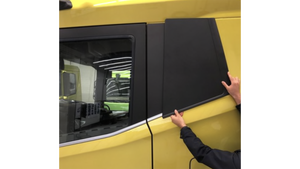Slowdown in purchasing comes amid relatively abundant supplies, weaker monomer costs, elevated energy markets, and sketchy global demand.
July 7, 2022

The spot resin market saw a significant slowdown as the second quarter came to a close. Trading activity dropped off compared to the robust volumes seen just a week earlier. Off-grade prices softened further while spot prime levels held flat this past week, but with a negative undertone, reports the PlasticsExchange in its Market Update.
There was a flurry of truckload demand — buyers were very willing to pay up for immediate shipment, especially heading into the long holiday weekend. Otherwise, processors continued to probe the market for buying opportunities, although deep discounts were mostly available for fresh railcars still to ship. Buyers in general have sauntered to the sidelines the past month or two, as recession fears took hold. The slowdown in purchasing highlighted relatively abundant supplies for most commodity grades and weaker monomer costs and elevated energy markets, all amid sketchy global demand, according to the PlasticsExchange.
PE resin contracts settle flat
Polyethylene (PE) contracts remain on track to settle flat in June, while polypropylene (PP) is recording a third consecutive decrease. This time it should be a dime based on continued weakness in monomer costs. Considerable price increases remain on the table for July PE and PP contracts, but given current market conditions, they seem unlikely. These price announcements also serve as protective action during the active hurricane season, notes the PlasticsExchange. While that has not been a factor yet, there are still a good four to five months before the region is fully out of the woods.
The Superfund Tax went into effect on July 1. This reinstated US tax applies to companies that manufacture, produce, or import certain chemicals and resins that include PE and PP resins. Producers and logistics companies have already put customers on notice that they intend to pass on the Superfund Tax as a line item on invoices. The PlasticsExchange said it is following suit to recover the tax expense for deliveries beginning July 1.
Although there is ample resin supply, jammed warehouses and backed-up packaging lines, rail congestion, heavy port traffic, and a truck-driver shortage are causing logistical challenges and long lead times. Deliveries into California will be more difficult during July after one major rail carrier issued a temporary permit embargo on a variety of goods and commodities because of severe weather events in parts of Southern California and New Mexico.
Considerable weakening in PE demand
PE trading slowed from the previous week’s fervent pace, with completed volumes at the PlasticsExchange trading desk down considerably. Spot prime prices managed steady for the week but were down $0.04/lb during June; they remain up by a couple of cents on average since the beginning of the year. Producers had been more willing to provide discounts to move material stuck in many Houston warehouses caused by several negative fundamentals, including growing upstream resin inventories, new capacity coming on-stream, relatively high operating rates, logistics constraints limiting exports, and weaker consumer demand.
Despite producers’ efforts to tack on additional contract gains after the May $0.03/lb increase, June contracts should confirm steady, according to the PlasticsExchange. The Chicago-based resin clearinghouse does not see much chance for an increase to go through, adding that it is highly unusual for contracts to decline one month after an increase. Unsuccessful nominations will roll to July, but unless something comes to disrupt production, it might be difficult to hold up these lofty contract levels.
Continued erosion in off-grade PP prices
PP was the more dominant resin to trade as June came to a close, although completions were at a lower volume than the previous week. Trading was well spread between homo- and co-polymer PP grades, and spot prime prices held flat. Meanwhile, off-grade prices continued to erode. Prime prices at the PlasticsExchange fell a nickel during June and have fallen $0.09/lb since the interim cycle top was made in May. Nevertheless, prime levels remain up $0.04/lb on average since the start of 2022.
A heavy flow of off-grade railcars and prime cars have been available for the asking. However, reseller inventories are very low so prompt availability is challenged, and resin packaged and ready for immediate shipment continues to garner a growing premium. While the PP import arbitration remains open, there are few takers as the overall market remains under downward pressure with new capacity coming online from Canada. This downward pressure comes after June PGP contracts settled with another 10-cent decrease, which should confirm to have cleanly carried through to June PP contracts.
Read the full Market Update, including news about PGP pricing and energy futures, on the PlasticsExchange website.
About the Author(s)
You May Also Like




